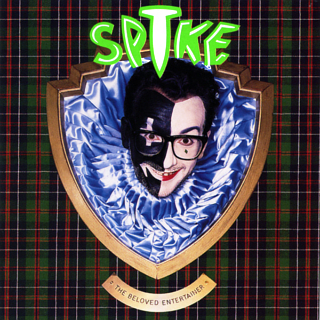I am glad that in this day and age
there is still a great deal of hyper-consumerism. Considering this week marked
the now-national holiday of Black Friday, we no doubt saw an enormous spike in
consumption and good old-fashioned capitalism – the likes of which would make
Reagan proud. (Hands off his business
and his jellybeans! Haha!)
Of course, I am being facetious. I
think it is morally wrong and despicable that we as consumers should support
the corporations that subject their employees to working on what has now become
the better part of Thanksgiving Day.
Naturally what should I do? Picket
in front of Target? Eat only non-processed raw food and spit the pits of my
avocados out at the Super WalMart? Camp in front of Best Buy only to give the
store manager a piece of my mind while other shoppers abscond with X Box Ones?
I actually did none of the above. In fact, I indulged in Black Friday. Yes, I shamelessly left my parent’s house at 8:30 P.M. to begin what would be a nearly 7- hour night with a full car in tow to buy Arcade Fire CDs at half cost and seasons of HBO shows I never really saw but heard about. I bought clothing, media, gadgets - you name it. (And at what low costs! Wow!)
Why would I do such a thing? Why would I support the companies that do such terrible things to their employees? Well, the simple answer is that I can’t do everything within my moral means. Sometimes I have to not care. Sounds harsh, right?
I actually did none of the above. In fact, I indulged in Black Friday. Yes, I shamelessly left my parent’s house at 8:30 P.M. to begin what would be a nearly 7- hour night with a full car in tow to buy Arcade Fire CDs at half cost and seasons of HBO shows I never really saw but heard about. I bought clothing, media, gadgets - you name it. (And at what low costs! Wow!)
Why would I do such a thing? Why would I support the companies that do such terrible things to their employees? Well, the simple answer is that I can’t do everything within my moral means. Sometimes I have to not care. Sounds harsh, right?
I dated a girl in high school who
was a self-proclaimed communist. She would encourage/make me picket in front of
stores with her, draw telling chalk propaganda outside of Urban Outfitters,
email and write CEOs, boycott certain TV programs and books – you name it, we
did. Eventually we stopped seeing one another – I probably wore the wrong brand
shirt or something, I’m still not sure what happened – and I stopped keeping up
with those practices. I found myself at certain times protesting and boycotting
nearly everything, and it was driving me insane. It wasn’t even name brands or
stores, I had gotten to the point where I was rejecting the modern man’s world like
some sort of new-world Amish.
I abandoned such a coarse mindset,
but there are still places I won’t patronize and products I won’t use.
Chik-filet and Abercrombie & Fitch come to mind, as I’m sure others would if
I racked my brain hard enough. Why, though, would I go out on Black Friday?
The honest truth – the lack of my consumption will change nothing. I realize that’s a shitty mindset to have but I hold it nonetheless. Sure, you could argue my presence is one less person out there or that if everybody thought like me then nothing would get accomplished, but screw it. I’m a college student with limited funds and if that means going out on Black Friday to buy my incredibly supportive grandparents a new coffee maker as a gesture that says “Thank you for literally keeping me alive and making me a contributing member of society, sorry I’ll never be as good of people as you two are,” then I will do so.
The honest truth – the lack of my consumption will change nothing. I realize that’s a shitty mindset to have but I hold it nonetheless. Sure, you could argue my presence is one less person out there or that if everybody thought like me then nothing would get accomplished, but screw it. I’m a college student with limited funds and if that means going out on Black Friday to buy my incredibly supportive grandparents a new coffee maker as a gesture that says “Thank you for literally keeping me alive and making me a contributing member of society, sorry I’ll never be as good of people as you two are,” then I will do so.
I can’t care about everything, as cynical
and lazy as it sounds, so I pick and choose my battles. I’m a consumerist, a
capitalist in my own rights, and even if I do go out on arguably the biggest
day of consumption of the fiscal year, I won’t be terribly upset with myself. I
had a great time with my friends while visiting in town, and it was an
incredibly nice way to round out my otherwise lackluster Thanksgiving. (By the
way, grandma and grandpa, if for some reason you are reading this, thanks again
for the dinner. You guys rock, seriously.)
